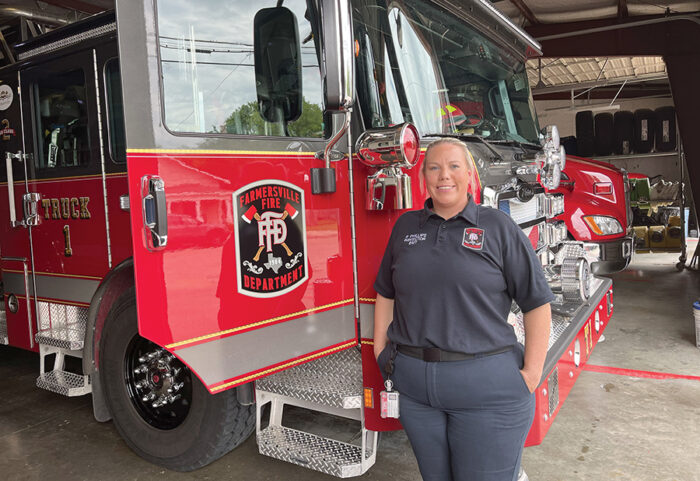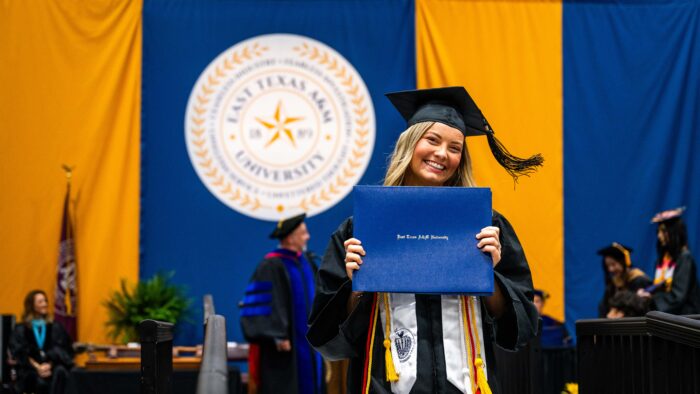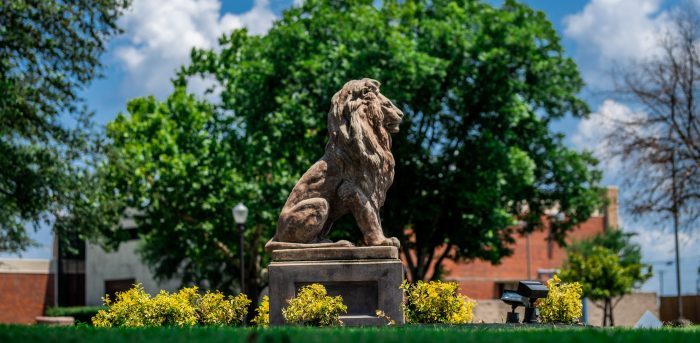
- On this page:
-
 Programs
Programs
-
 Welcome
Welcome
-
 Graduate Assistantships
Graduate Assistantships
-
 Student Orgs
Student Orgs
-
 Faculty
Faculty
-
 Contact
Contact
Department of Social Sciences
Connecting Communities, Transforming Justice
Whether you’re passionate about understanding social phenomena or driven to pursue justice and public safety, you’ll find a supportive community of scholars, educators and peers ready to guide you on your career path.
As a student of the social sciences, you can expect to develop a sociological insight as you become familiar with theoretical analysis of the social world. You will learn to better understand the structures and patterns upon which everyday life rests, to understand the interplay between individual choices and social constraint, to interpret events from multiple perspectives and to examine social arrangements critically. You will learn how to make a difference in the lives of others!

Explore Our Programs
Applied Criminology (MS)
The entirely online Master of Science in Applied Criminology degree meets the needs of traditional students preparing to embark on new careers, as well as those currently working in the criminal justice field and those wishing to pursue professional advancement..
Criminal Justice (BACJ/BSCJ)
The broad field major in criminal justice is designed for students who wish to receive the Bachelor of Arts or Bachelor of Science in Criminal Justice. The curriculum has a multi-disciplinary foundation, is social science oriented, is academic in content and emphasizes the development of knowledge and skills essential for a broad understanding of the criminal justice system. The objective of the major is to prepare you for entry-level positions in law enforcement, juvenile justice, courts, community-based corrections, institutional corrections and other related fields.
Criminal Justice Management Graduate Certificate
Criminal Justice Studies Graduate Certificate
If you are seeking to gain general knowledge in the field, whether you are new to concepts in criminal justice or are currently working in the criminal justice field, this might be the best fit for you. The flexibility of this certificate allows for a great deal of latitude in customizing courses to suit individual professional interests.
Homeland Security Graduate Certificate
This certificate is designed to attract members outside traditional criminal justice fields. Through this program, you will gain a broad understanding of homeland security issues while enhancing leadership capabilities among those who currently work in local, state and federal government and others who are interested in gaining greater knowledge about the field of homeland security. This certificate focuses on homeland security concepts, applicable management principles, policy analysis and the enhancement of critical thinking skills necessary to successfully address security challenges within the United States.
Latin American and U.S. Latino Studies Minor
The interdisciplinary minor in Latin American & U.S. Latino Studies (LALS) is designed to introduce undergraduates at East Texas A&M to the histories, cultures, politics, and societies in Latin America, as well as the descendants of Latin Americans who reside in the United States (U.S. Latinos). This minor is open to all majors and requires students to select courses in various departments to maximize their academic understanding of the region.
Legal Studies Minor
The legal studies minor gives students the benefit of a multi-disciplinary minor with rigorous courses intended to improve their ability to get into law school and help them to succeed once there. The reason for this is that not only do law schools consider undergraduate GPA in admission decisions—they also consider the quality of the undergraduate courses taken by a candidate. The minor in legal studies is available to any student in any major who is considering law school upon graduation from East Texas A&M.
Paralegal Studies (BA/BS)
Paralegal studies provides specialized classes to prepare you to work in law offices as a paralegal. Practicing attorneys teach courses in family law, real estate law, business law, probate, legal research and other areas. This is definitely a growing field with a promising job market.
Political Science (BA/BS)
The undergraduate bachelor's degree programs in political science are intended to introduce students to key concepts and methods used in the study of politics and government. Through courses in American politics, comparative politics, international relations, political philosophy and public policy, students develop skills in communication, critical and analytical thinking, and a deeper understanding of their personal and social responsibilities.
Sociology (BA/BS)
Explore the complexities of human behavior, social structures, and the dynamics that shape our world. With a blend of theoretical frameworks, empirical research, and critical analysis, delve into topics ranging from inequality and social justice to culture and globalization.
Sociology (MA/MS)
The Master’s in Sociology at East Texas A&M is designed to meet the needs of those pursuing public service careers, community college teaching opportunities, careers in research, administrative careers in both the public and private sectors, as well as preparing students for more advanced graduate work in sociology.

Welcome from the Department Head
Sociology as a social science is often misunderstood, but once students take the first course—Introduction to Sociology—they realize that there is much to be investigated and explored by how society operates, functions and exists. Those who become majors are fascinated by the number of existing courses that explore human behavior in its many dimensions. Our faculty is prepared to engage students in courses related to: social problems, sociology of gender, sociology of internet, and gender and work.
Criminal Justice is a highly popular discipline and a challenging subject area filled with interesting courses such as Crime and Mass Media, Serial Murderers, Victimology and Crime Mapping. The faculty within the department are experts in many of these topics, so classes are exciting, engaging and rigorous. Students are exposed to as much of real life in the criminal justice field as possible.
Political Science is a dynamic field that explores power, governance and the institutions that shape our world—locally, nationally and globally. Students are often surprised by how relevant political science is to their daily lives, especially as they begin to understand how political systems influence social structures, public policy and global affairs. Those who pursue the major gain insight into topics like American government, international relations, political theory and public policy. Students can also take advantage of opportunities beyond the classroom, including study abroad, political simulations, and involvement in the nationally recognized honor society, Pi Sigma Alpha.
We welcome the opportunity to explore degree options with you.
Faculty Spotlight
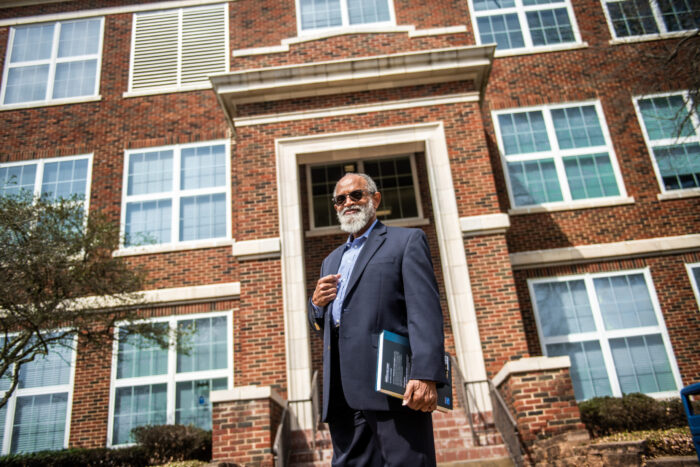
Willie Edwards

Nicole Farris, Ph.D.
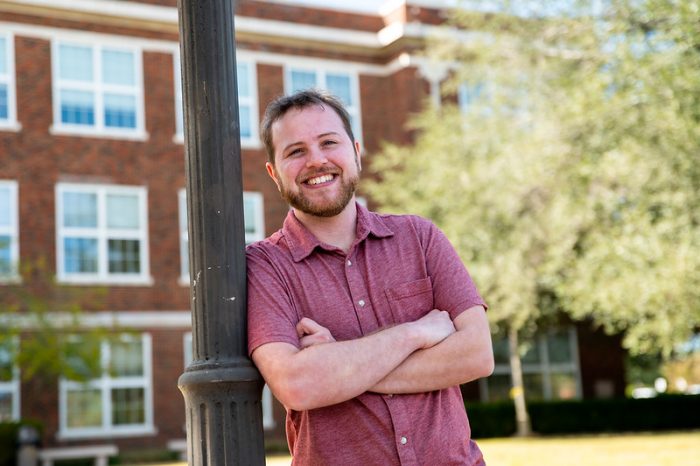
Zachary Palmer, Ph.D.

Robert G. Rodriguez, Ph.D.
Graduate Assistantships
Help pay for your education while earning valuable experience in the field. A limited number of Graduate Assistantships are available on a competitive basis in the department.
Student Organizations
We strive to create a community where you feel empowered to learn and grow. Explore personal development opportunities outside of the classroom.
The purpose of the Sociology and Criminal Justice Society is to form a bond among students, teachers, the community and members of the profession. This relationship is designed to advance the scholarship and fraternity of its members, to foster integrity and professional competence, to promote the welfare of its members and to encourage intellectual advancement so that each member may enjoy a lifetime of honorable service.
Membership in SACS is open to any student or faculty member who has an interest in sociology or criminal justice and is dedicated to upholding the professional integrity of their chosen field. Members are expected to actively engage in fraternal and scholarly endeavors through participation in the organization’s activities.
To learn more, contact the department at 903.886.5332.
The Alpha Kappa Omega chapter of the national criminal justice honor society Alpha Phi Sigma was chartered at East Texas A&M University in 1997. Its purposes are to recognize and promote high scholarship among students actively engaged in collegiate preparation for professional services; to keep abreast of the advances in scientific research; to elevate the ethical standards of the criminal justice profession; and to establish in the public mind the benefit and necessity of education and professional training.
To be eligible to join Alpha Phi Sigma, Criminal Justice majors and minors must have:
1. A minimum GPA of 3.2 overall
2. A minimum GPA of 3.2 in completed Criminal Justice courses, including transfer credits
3. Completed at least one-third of the total credit hours required for graduation
4. Completed a minimum of four Criminal Justice courses
5. Rank in the top 35% of their class
Members pay a one-time national membership fee and nominal annual local dues, totaling $75 for the school year. A certificate and pin are provided to inductees as symbols of the distinction of membership. Honor cords, Honor stoles and/or Honor Medallions worn at graduation are also available for purchase. Initiation occurs twice during the school year during the Fall and Spring semesters.
Local membership: Students with a 3.0 GPA and completed at least two courses in Criminal Justice may join the local chapter and participate in all local activities. Upon reaching the national requirements, students may be inducted into the Alpha Kappa Omega chapter. Local dues are $25.00 per academic year.
JOIN ALPHA PHI SIGMA:
MORE INFORMATION:
For further information about Alpha Phi Sigma, contact James Purdon.
Alpha Kappa Delta (AKD), the International Sociology Honor Society, was founded on the East Texas A&M campus in 1963. Created to recognize outstanding scholarship in the field of Sociology, AKD is a democratic, non-secret organization dedicated to the scientific study of human society and the betterment of humankind. AKD sponsors a number of events and activities and often joins with SACS to sponsor guest speakers and other academic events in the department and on campus.
Eligibility Requirements:
Undergraduate Students:
- Must be an officially declared sociology major or demonstrate a serious interest in sociology within an official program of the host institution. Must be at least a junior (third year) by standards of the host institution.
- Sociology minors are eligible
- Shall rank in the top 35% of their graduating class in general scholarship. Must have maintained the equivalent of a 3.0 GPA in sociology courses taken at the host institution prior to initiation
- If class rank is not readily available to a chapter representative, in lieu of class rank, students shall have accumulated the equivalent of an overall grade point average of at least 3.3 by a four point scale where: A=4, B=3, C=2, D=1, F=0
- Must have completed at least four regular courses in sociology at the host institution prior to initiation (exclusive of extension or courses graded pass/fail)
Graduate Students:
- Must be officially admitted to graduate study in sociology at the host institution
- Completion of one half year of graduate study in sociology (i.e., one semester or two quarters or the equivalent academic unit)
- Graduate GPA of a B or better
- Continued matriculation in a program of study leading toward a graduate degree in sociology at the host institution
Membership is granted without regard to race, creed or national origin. Initiation is held twice a year: in November during the fall semester and April during the spring semester. Dues are $65 and include a t-shirt, certificate and a one-year subscription to Sociological Inquiry.
AKD members who would like to purchase an honor cord for graduation may do so by contacting one of the advisors.
Join Alpha Kappa Delta:
More Information:
For more information about Alpha Kappa Delta, please contact one of the advisors: Dr. Julia Meszaros or Dr. Nicole Farris.
News Spotlights
Meet our Department
Contact Us
- Department of Social Sciences
- 903.886.5332
- 903.886.5330
- Ferguson Social Sciences, 210
- 1702 Education Drive
- Commerce, TX 75428
- P.O. Box 3011
- Commerce, TX 75429-3011



